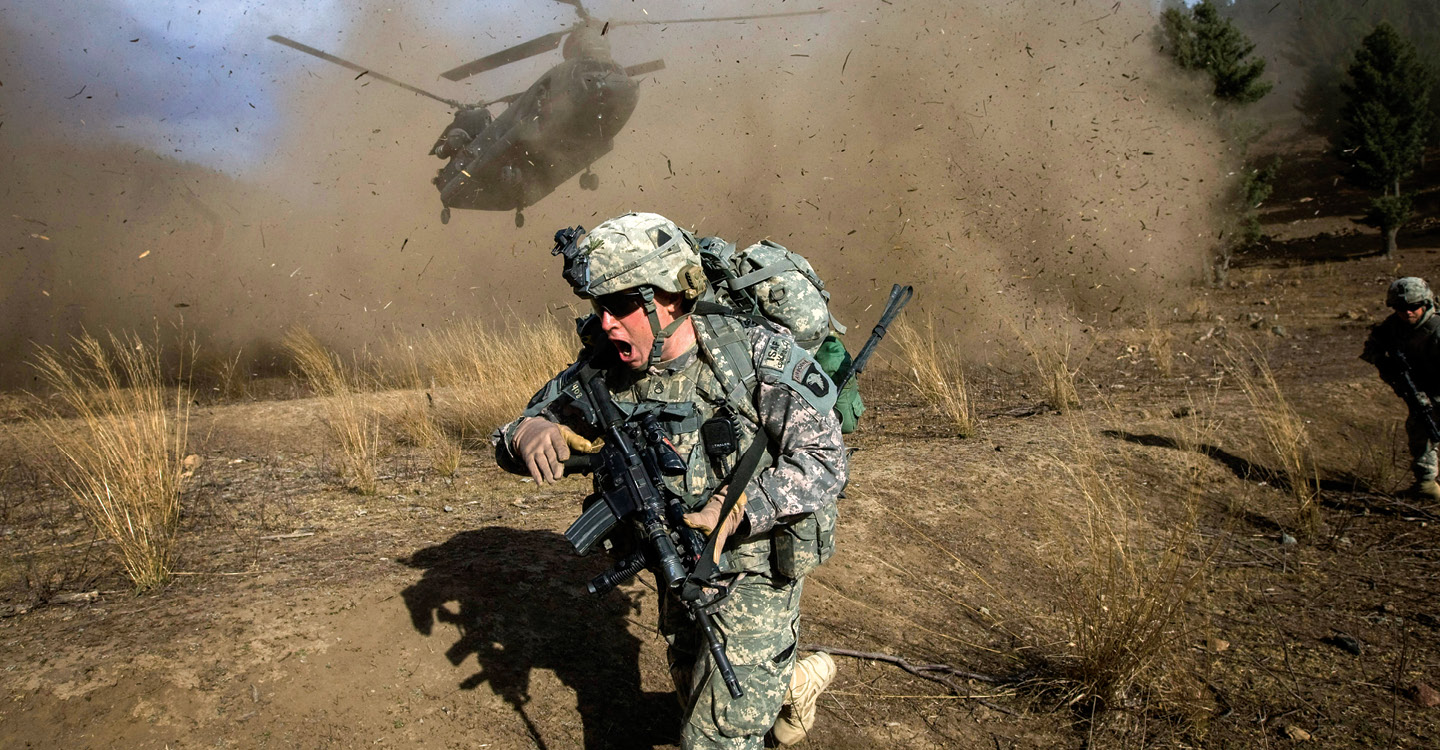Sergeant First Class Dustin Comes is in charge of one of the busiest Army recruiting centers in Colorado. He joined the Army, in part, because his father served. Now two of his four children say they want to serve too. And he won’t be surprised if the other two make the same decision once they’re a little older.
“Hey, if that’s what your calling is, I encourage it, absolutely,” says Sergeant Comes, who wears a dagger-shaped patch on his camouflage uniform, signifying that he has been in combat.
Soldiers like him are increasingly making the United States military a family business. The men and women who sign up overwhelmingly come from counties in the South, from a scattering of communities at the gates of military bases, and from places where the tradition of military service is deeply ingrained.
More and more, new recruits are the childrenof old recruits. In 2019, 79 percent of Army recruits had a family member who served. For nearly 30 percent, it was a parent—a striking point in a nation where less than 1 percent of the population serves in the military.
Sergeant First Class Dustin Comes manages one of the busiest Army recruiting centers in Colorado. His father served in the Army. That’s part of why he joined. Now two of his four children say they want to serve too. And he won’t be surprised if the other two make the same decision once they’re a little older.
“Hey, if that’s what your calling is, I encourage it, absolutely,” says Sergeant Comes. He wears a dagger-shaped patch on his camouflage uniform. It’s a symbol that shows he’s been in combat.
Soldiers like him are increasingly making the United States military a family business. The men and women who sign up overwhelmingly come from counties in the South, from a scattering of communities at the gates of military bases, and from places where the tradition of military service is deeply ingrained.
More and more, new recruits are the children of old recruits. In 2019, 79 percent of Army recruits had a family member who served. For nearly 30 percent, it was a parent. That’s a striking point in a nation where less than 1 percent of the population serves in the military.

